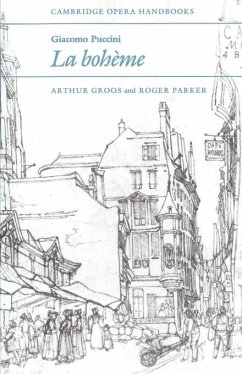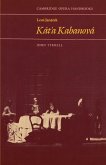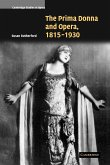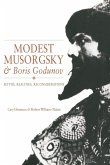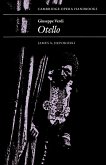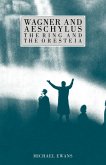This guide presents a unique collection of critical, analytical, and documentary essays on Puccini's most popular opera. There are new studies on the background to Parisian bohemianism (by Jerrold Seigel), on Puccini's musical language (by William Drabkin), and on the opera's stage history (by William Ashbrook). Following research in Italian archives, and a thorough study of the published sources (many of them previously unknown to modern scholarship), the editors have added further essays on the genesis of the opera, the structure of the libretto, and aspects of the work's reception. The book also contains a brief study of Puccini's working methods as seen through the autograph score, a full synopsis, discography, many illustrations, and an appendix of related documents (some published in English for the first time).
Table of contents:
1. The rise of bohemia Jerrold Seigel; 2. Synopsis; 3. The genesis of the opera; 4. The libretto; 5. The musical language of La bohéme William Drabkin; 6. Puccini at work: a note on the autograph score; 7. A brief stage history William Ashbrook; 8. Three early critics and the Brothers Mann: aspects of the La bohème reception; Appendix: bohemian politics and the act that disappeared F. Regina Psaki, Arthur Groos and Roger Parker; Notes; Bibliography; Discography Malcolm Walker.
This guide presents a unique collection of critical, analytical and documentary essays on Puccini's most popular opera. It includes new studies on the background to Parisian bohemianism, Puccini's musical language, and the opera's stage history as well as the genesis of the opera, the structure of the libretto, and aspects of the work's reception.
Hinweis: Dieser Artikel kann nur an eine deutsche Lieferadresse ausgeliefert werden.
Table of contents:
1. The rise of bohemia Jerrold Seigel; 2. Synopsis; 3. The genesis of the opera; 4. The libretto; 5. The musical language of La bohéme William Drabkin; 6. Puccini at work: a note on the autograph score; 7. A brief stage history William Ashbrook; 8. Three early critics and the Brothers Mann: aspects of the La bohème reception; Appendix: bohemian politics and the act that disappeared F. Regina Psaki, Arthur Groos and Roger Parker; Notes; Bibliography; Discography Malcolm Walker.
This guide presents a unique collection of critical, analytical and documentary essays on Puccini's most popular opera. It includes new studies on the background to Parisian bohemianism, Puccini's musical language, and the opera's stage history as well as the genesis of the opera, the structure of the libretto, and aspects of the work's reception.
Hinweis: Dieser Artikel kann nur an eine deutsche Lieferadresse ausgeliefert werden.

